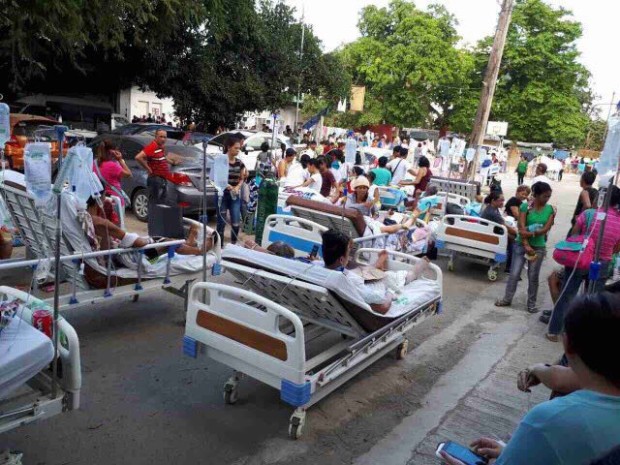The series of earthquakes that recently hit the country just days apart were not necessarily related to one another, according to the Philippine Institute of Volcanology and Seismology (Phivolcs).
Bartolome Bautista, Phivolcs deputy director, said the magnitude-6 quake that struck off Lanao del Sur on Wednesday morning and the series of tremors that jolted Davao Oriental in the past few days were not connected to the earthquake swarm in Batangas over the weekend.
READ: Houses damaged as strong earthquake hits southern PH
“Ito pong lindol sa Mindanao wala po itong kinalaman sa nangyari sa Batangas. Separate structure po ‘yung gumalaw sa Mindanao,” Bautista said in an interview over ABS-CBN News Channel.
(“This earthquake in Mindanao has nothing to do with what happened in Batangas. What moved in Mindanao was a separate structure.”)
“The reason is the Philippines is located in a seismically active region at marami tayong active faults na pwedeng gumalaw anytime,” he added.
(“The reason is the Philippines is located in a seismically active region and we have a lot of active faults that can move anytime.”)
The Philippines is located in the so-called Pacific Ring of Fire, a region in the Pacific Ocean where many earthquakes and volcanic activity happen due to collision of continental plates.
Amid public clamor over the possibility of a stronger temblor that may hit Metro Manila, Bautista said it was just a “coincidence” that the earthquake swarms that rocked Batangas and areas in Mindanao happened a few days apart.
He noted that normal series of quakes in other areas were not as publicized and reported because they occur in less populated places with less impact on residents, unlike Batangas and Manila.
“Nagkataon na ‘yung mga lindol na ito ay nangyari sa highly populated na lugar like ‘yung sa Batangas,” Bautista said. “Malaking area ‘yung nakaramdam nito… Nagkataon lang na magkasunod sila. Coincidence lang ‘yun at hindi dahil sa ibang factors. Karamihan nangyayari sila sa mga lugar na hindi populated kaya hindi natin napapansin.”
(“It was just a coincidence that the earthquakes happened in a highly populated area like Batangas. They were felt in a large area. They just happened to occur one after the other. That was just a coincidence and not due to other factors. Most of the time these earthquakes happen in areas that are not populated. That’s why we don’t notice them.”)
The magnitude 6.0 quake that jolted Lanao del Sur at dawn on Wednesday came days after Phivolvs recorded earthquake swarms in Davao Oriental, a magnitude 5.4 quake in Samar, and the trio of strong tremors in Mabini, Batangas last Saturday, which damaged buildings and roads.
In February, a 6.5 magnitude quake in Surigao killed eight people and left more than 250 injured.
The Phivolcs has earlier called on the public not to share unverified earthquake alerts or warnings. /atm
